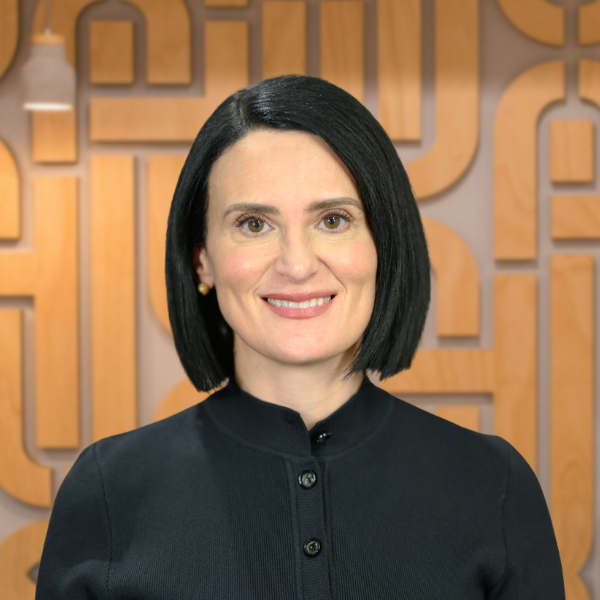In this article
As the demand for responsible investing grows, many financial advisers are seeking ways to incorporate it into their practice and meet their clients’ needs more holistically.
We’ve brought together industry experts in environmental, sustainable and governance (ESG) investing to discuss how it’s spanning generations and influencing how advisers engage with their clients. Advisers also discuss how they are deepening client relationships and expanding their value proposition by providing ESG and responsible investing advice.
ESG Trends, Challenges and Misconceptions
Australian Trends
Responsible investing is no longer a niche investment concept sought out by a select group of financial advice clients. The pandemic, natural disasters, climate change and a growing awareness of our world and environment have prompted clients to pay more attention to how and where their money is invested.
According to research from the Responsible Investment Association Australasia (RIAA), 83% of Australians expect their super to be invested responsibly and ethically, and 80% expect their savings to have a positive impact on the world. In addition, 64% of Australians expect their financial adviser to be knowledgeable about responsible investment options. This has increased from 54% in 2020 and is now the number one expectation that Australians place on financial advisers – even prioritised over investment returns.1
As a result of this growing demand, companies and investment managers are responding to bottom-up pressure to report on their sustainability metrics, and top-down pressure from regulatory bodies such as the ASX, ASIC and APRA to ensure products are labelling themselves truthfully as the pool of responsible investments continues to grow. The increased focus on sustainability is having a positive impact on corporations, prompting them to improve their business operations to compare favourably to their peers and attract capital from institutional and retail investors.
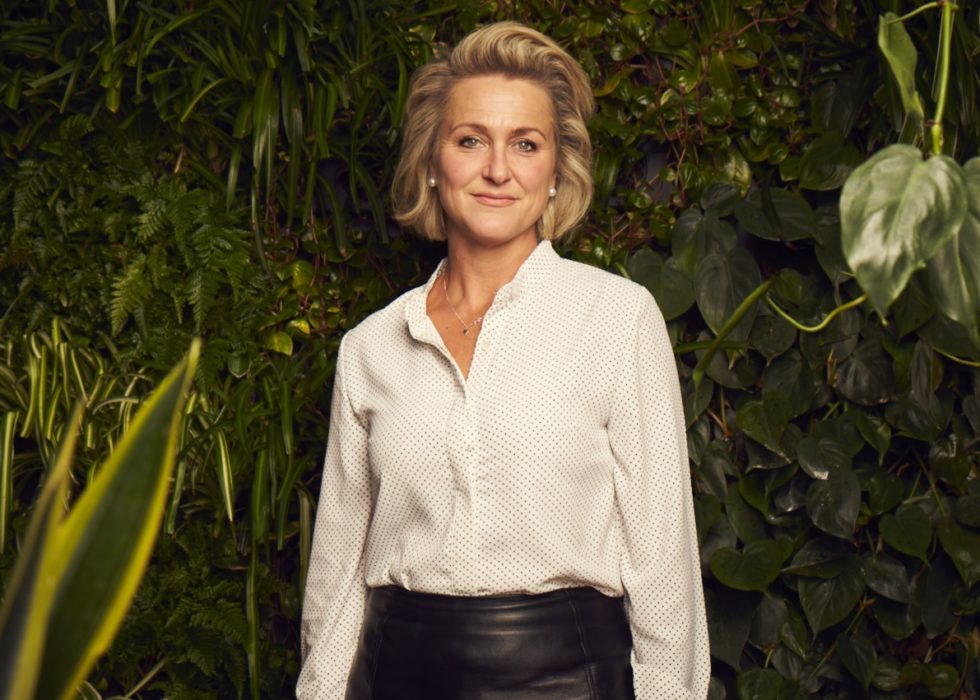
Leah Willis, Head of Client Relationships at Australian Ethical, explains that many Australians are no longer willing to invest just for returns without any consideration of potential risks for the environment, animals, human rights and the supply chain.
“There’s a rising social consciousness around what we do every day that has tipped over into investments,” she said. “Responsible investing, as benchmarked by RIAA, now makes up over 40% of all professionally-managed assets in Australia. It’s rapidly becoming mainstream, and it’s growing every year.”
“There’s a rising social consciousness around what we do every day that has tipped over into investments. Responsible investing, as benchmarked by RIAA, now makes up over 40% of all professionally-managed assets in Australia. It’s rapidly becoming mainstream, and it’s growing every year.”2
Environmental issues are the primary concern for clients who currently hold ESG investments – rating above corporate governance, ethical, social and Indigenous issues. Over the past year, 54% have bought or sold ESG investments based on environmental considerations.3
Leah says, “Climate is the number one issue we’re contending with globally, and also where the investment demand lies.
“Clients are seeking forward-looking approaches to climate, rather than settling for investment managers excluding certain stocks from portfolios.”
The table below shows the top 5 environmental and social themes that Australians care about when investing, as reported by RIAA:4
What Australians care about when investing
Environmental Themes
- Renewable energy and energy efficiency
- Sustainable water management
- Healthy rivers and oceans
- Zero waste and circular economy
- Sustainable land and agriculture
Social Themes
- Healthcare and public health
- Employment and local business
- Green, social and community infrastructure
- Education and vocational training
- Inclusion (financial, social, accessibility etc.)
Today, nearly one in two Australian advisers provides advice on ESG investments. This is up from one in five in 2016. More than half (57%) of these advisers have seen an increase in client demand for responsible investments over the last 12 months.5

Global Trends
Globally, similar trends are emerging. According to the Principles for Responsible Investment, climate change is the highest priority ESG issue facing consumers and organisations around the world.6
As ESG investing becomes mainstream globally, regulators are focusing on sustainability ratings and standards to ensure credibility and improve transparency. Global developments such as the Paris Agreement, the Sustainable Development Goals, the Task Force on Climate-related Financial Disclosures and the United Nations Environment Program Finance Initiative (UNEP FI) are providing a framework for companies to follow, which is making it easier for clients and advisers to rate their sustainability.
The trends in overseas investment markets are also similar to the Australian market. Global ESG assets surpassed $35 trillion in 2020 (in US Dollars), up from $30.6 trillion in 2018 and $22.8 trillion in 2016.7
From 2018 to 2020, Canada experienced the largest growth in ESG assets (48%), followed by the United States (42%), Japan (34%) and Australasia (25%). Europe continues to lead the way for the rest of the world with ESG investing. In 2022, ETFs aligned with ESG outcomes accounted for 65% of all net inflows into European ETFs.8, 9
ESG Terminology
The words ‘ethical’, ‘responsible’ and ‘sustainable’ can mean different things to different clients. Understanding your clients’ priorities and motivations can help you ascertain what approach to take when developing their portfolio.
For example, Morningstar’s ESG framework describes ESG investing in the context of a client’s motivations for people, the planet and profits. At one end of the scale, a client might consider ESG risks and wish to exclude certain investments from their portfolio. At the other end of the scale, they might actively seek investments that will make a positive impact to the world.
So, what does the jargon mean?
ESG investing approaches
Excluding Investments (or negative screening)
Reducing or excluding exposure to certain companies, sectors or countries that don’t align with your client’s values or are considered unethical, harmful or controversial according to global standards. For example, tobacco, firearms, gambling, alcohol, palm oil, adult entertainment or fossil fuels.
Assessing ESG risk
Using ESG information and ratings to assess an investment’s material ESG risk alongside traditional financial analysis.
Including Investments (or positive screening)
Identifying companies that are sustainability leaders or are solving specific ESG challenges such as climate change or human rights.
Shareholder advocacy
Engaging with a company as a shareholder to influence a company’s strategy and actions to generate positive ESG outcomes.
Investing for Impact
Choosing investments that are likely to benefit from long-term environmental and social trends. This might include renewable energy, innovative technology and gender equity. Sustainability is a major component of security selection and portfolio construction. For example, selecting bonds that finance projects which will benefit people and the planet.
Busting the Top 5 ESG Myths
Despite the growth and widespread popularity of ESG investing, there are still many misconceptions held by clients and financial advisers. Erica Hall, ESG Analyst at Morningstar, describes some misconceptions she frequently comes across.
Here are her top five:
1. ESG is a fad
The ESG market is evolving and maturing and is no longer a niche strategy that appeals to a certain type of client. Instead, it’s fast becoming a mainstream strategy that enables all types of clients to align their portfolios to their values and invest for impact.
“ESG investing is a way to make a positive difference and enact change,” Erica said. “While each country has its own sustainability priorities, ESG is a growing global trend. Now that the Climate Change Bill 2022 has passed in the Senate, Australia has a path to net zero by 2050. We’re already seeing in Australia, strategies relating to mitigating climate change.”
2. Only younger generations are interested in ESG investing

Millennials and Gen X may be the ones leading the charge towards sustainable and impact investing, but Baby Boomers also care about how their money is invested.
“This generation is being influenced by the younger generations,” Erica said.
“They’re concerned about the future too. They’re thinking about handing over their assets and what that will look like. They’re keen to make a positive difference so their children and grandchildren have a good world to live in.”
3. ESG investments have poor performance
While some ESG investments won’t always perform in line with the broader market, this doesn’t mean that clients need to accept poor performance to invest responsibly. Nor does it mean that clients need to place their values above their desire for strong investment returns.
“Sustainable investors still seek to generate positive returns from their investments, however the difference compared to a non-sustainable investor is they care how those returns are derived,” Erica said. “The composition of ESG portfolios means there may be short-term periods where they perform better or worse than the broader market. But the data has shown this evens out over the long term. Even with the energy crisis and price correction for tech stocks that we’ve seen recently, ESG portfolios have kept up with the broader market over a five-year period.”
4. Sustainable portfolios shouldn’t have any exposure to resource stocks
While reducing exposure to fossil fuels is a major component of many sustainable portfolios, the resources sector is going through a transition process in Australia. Resources can include both renewable and non-renewable forms and labelling sustainability-related portfolios clearly and accurately is important to provide transparency and avoid misleading investors. Instead of avoiding resource stocks completely, another strategy might be to examine which companies are on a clear transition pathway to net zero.
“A lot of fossil fuel companies are proactively transitioning and investing in more renewables,” Erica said. “They’re getting rid of their high polluting assets and actively reducing their carbon emissions. It’s complicated. We’re a resource-rich nation with a lot of exposure – directly or indirectly – to the fossil fuel sector. If you exclude a big component of the market, there will be unintended consequences you will have to deal with.”
Erica explores this concept in more detail in her September 2022 paper Do sustainable portfolios have a fossil fuel problem?
5. There aren’t enough ESG options to create a diversified portfolio
The first ESG investment options to appear in the Australian market were heavily focused on equities, which made it difficult to construct a multi-asset portfolio. However, now that the industry has evolved, there are many more options and ESG-related data available to help advisers make an appropriate ESG assessment for their clients.
“It used to be much harder to find suitable over-the-counter instruments, like bonds, but that’s come along in leaps and bounds,” said Erica. “Over the past 12 months we’ve seen a lot more rated ESG bond strategies and that’s allowing advisers to construct efficient multi-manager strategies.”
What is Greenwashing?
Companies are responding to the growing demand for sustainability by examining their business practices, aligning their business goals to benchmark sustainability goals, and disclosing their results to investors and shareholders. While this is a positive development, it’s led to an issue referred to as ‘greenwashing’ where some companies have been found to convey false or misleading information about the sustainability of their products, processes or investment strategies. This is a serious issue because it can influence clients’ decisions and erode confidence in sustainability products.
In the Investment Trends 2022 ESG Adviser Report, 34% of financial advisers said they find greenwashing their biggest challenge when recommending responsible investments.

In June 2022, ASIC issued Information Sheet 271 to provide responsible entities of managed funds and super fund trustees with guidance about how to avoid greenwashing when offering or promoting sustainability-related or ethical products and investments.
ASIC has stated that enforcement action against greenwashing is one of their current priorities and has issued several infringement notices to companies for making false or misleading sustainability-related statements.
Starting the ESG Conversation
You don’t need to be an ESG expert to start the conversation with your clients. Understanding their values and the connection to their investment needs is simply an opportunity to get to know your client at a deeper level.
Creating deeper clients relationships and increasing client engagement
Deepening client relationships
Advisers who provide ESG advice are reporting a better rapport with their clients by being able to align their clients’ values with their investments. Exploring topics that clients feel passionate about and discussing their personal values, instead of just their desired financial outcomes, allows for deeper conversations and increased engagement. This can help to build stronger and more trusted relationship.
Clients staying the course
Clients with responsible investments also tend to be ‘stickier’ and ride out market volatility. Clients who choose these types of investments generally have a good understanding of the long-term nature of ESG investments and are willing to ride out short-term fluctuations. Almost two-thirds of clients (64%) agree that responsible and ethical investments perform better in the long term.10
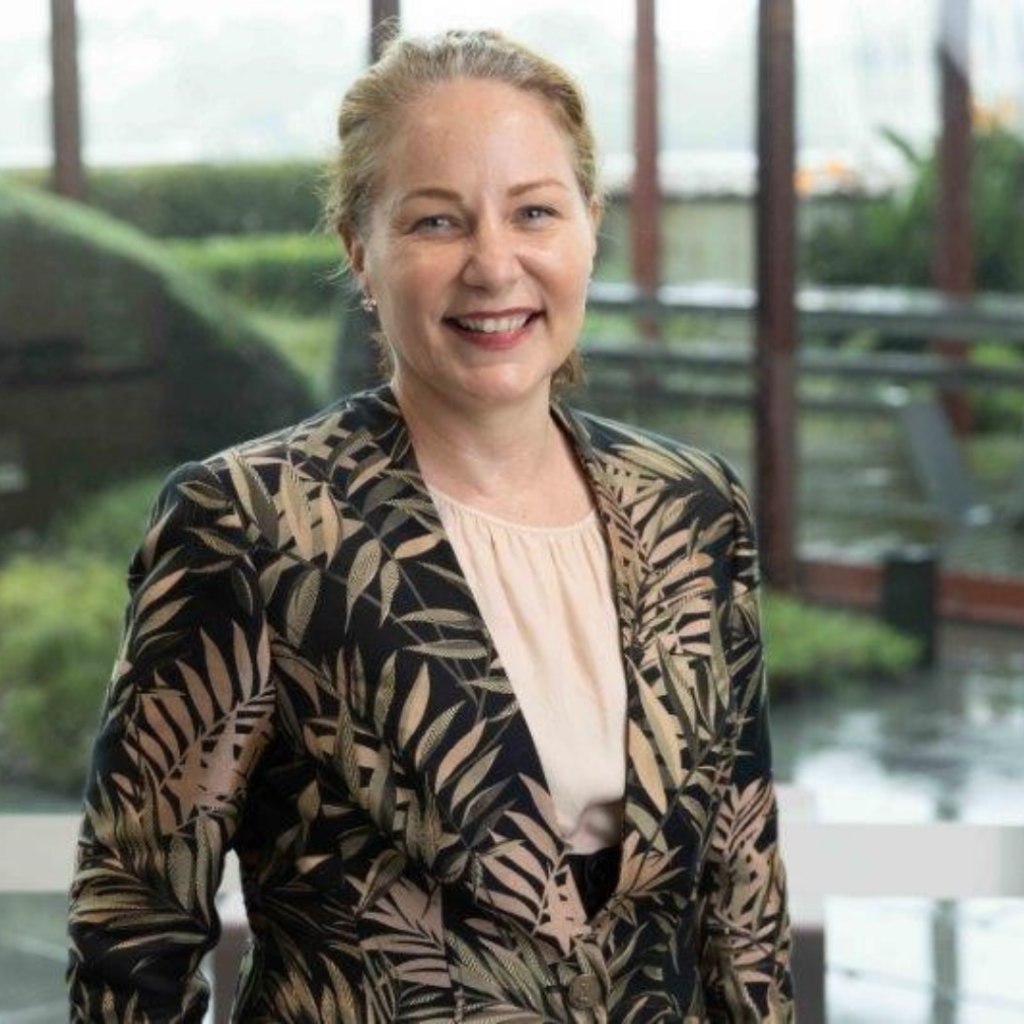
“When clients choose investments that are aligned to their values, beyond just performance, they’re more patient because they have complete clarity on why they’re invested. As a result, these clients tend to hold the course and stick with their investments, even in times of market volatility.”
BENEFITS OF ESG INVESTING FOR CLIENTS AND ADVISERS
Here are some of the key benefits for clients, advisers and their practices identified in the Investment Trends 2022 ESG Adviser Report:
Benefits for clients
58%
Positive outcomes for the environment / community
32%
Potential higher returns in the long-term
62%
Increased engagement with their investments
Benefits for advisers and their practice
53%
Enhancing value proposition
36%
Attracting more clients
45%
Building better rapport with existing clients
Why start the ESG conversation?
Why offer ESG advice if your client hasn’t expressed an interest? Research suggests that many clients have a strong interest in ESG investing even if they haven’t brought it up with their adviser. Almost three in four (71%) clients who don’t currently have ESG investments haven’t discussed responsible investing with their adviser but would like to.11
The transition of wealth is one of the driving forces behind the surge in ESG investing and a reason to engage clients from all generations. Baby Boomers currently make up 21% of the population but control 49% of the assets. Those assets will transition to the younger generations over the coming decades. This is a key reason to engage in conversations about intergenerational wealth transfer and your client’s values and ESG preferences.12
Regardless of your client’s current investment needs and the investment decisions they have made in the past, it’s possible that ESG investing will become a focus for them and their children in the future.
Leah Willis confirms that while responsible investing is in high demand across all generations, it’s being driven by the younger groups who are seeking out purpose and values alignment in all aspects of their life.
“This will continue to drive demand in responsible investing not just for climate issues but also for social issues like animal cruelty and welfare, human rights, social equity and supply chains,” she said. “These complex social issues may possibly be daunting for some financial advisers, but it’s also really exciting in terms of where investments might go in the next decade.”
“These complex social issues may possibly be daunting for some financial advisers, but it’s also really exciting in terms of where investments might go in the next decade.”
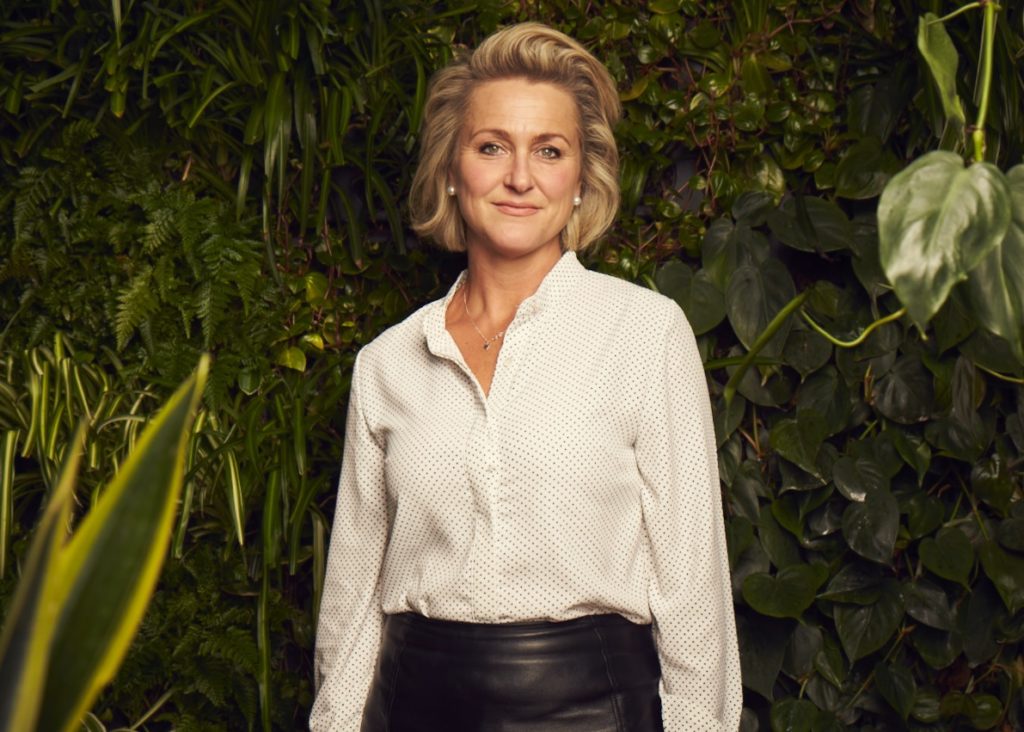
Tips for the initial ESG conversation
If you’ve never provided ESG advice before, these tips may help you become more comfortable steering client discussions towards ESG values and preferences:
- Understand the scope of ESG investing. Investing responsibly doesn’t mean only choosing investments that are at the forefront of global sustainability. Your client may be satisfied with investments that are at the beginning of their sustainability journey, as long as they’re on the right path. Identifying your client’s ESG motivations (as discussed in part 1) may be useful to steer conversations.
- Initiate the conversation. Ask your client questions and find out what’s important to them in terms of their ESG preferences and values. They may not be ready or interested right now, but by asking the question you have given them the opportunity to consider their current and future investment needs and taken an important step to understand their needs at a deeper level.
- Incorporate sustainability questions into your fact find. As well as discussing ESG investing in person, add some open-ended questions into your fact find. Well-worded questions will get your clients thinking about what’s important to them and the legacy they want to leave behind for future generations.
- You don’t need to be an expert. While understanding ESG investments and what they are trying to achieve is important, you don’t need to be a sustainability expert to provide ESG advice. Your clients don’t expect you to understand every environmental and social issue. It’s okay to say that you will look into it for them and come back to them at a later date.
- Have a tool kit to assess ESG investments. One of the things financial advisers may find challenging is not having access to a trusted source of ESG investment information to help them assess and rate investments. In the Investment Trends 2022 ESG Adviser Report, 47% said they needed greater transparency of underlying investments to have richer responsible investing conversations with their clients. In a similar vein, 37% said they needed better selection or comparison tools. HUB24’s ESG Ratings functionality offers one way to assess investments, however there are a range of tools and investment managers who can support the process.
ESG Ratings Functionality on HUB24
As more of your clients embrace responsible investing, data-driven ESG insights can empower you to construct personalised investment strategies to meet their individual ESG investment needs. To address these challenges and make it easier for advisers to recommend responsible investments, HUB24 has collaborated with Morningstar and the Responsible Investment Association Australasia (RIAA) to provide ESG Ratings for selected funds and Australian-listed securities.
ESG Ratings on the managed funds investments page gives you direct visibility of Morningstar Sustainability Ratings, environmental scores, carbon scores and more. It also indicates where funds have been certified by RIAA.
In addition, ESG Ratings on the Australian Listed Securities investment page provides Morningstar ESG scoring for over 350 securities available on HUB24.

find out more about esg ratings functionality on hub24
The Morningstar Sustainability Ratings are the industry standard for measuring ESG risk. They provide a snapshot of how well an investment is managing ESG risk relative to its peer group.
The RIAA Certification Program is the leading initiative for distinguishing quality responsible, ethical and impact investment products and services in Australia and
New Zealand.
Stock substitution
Our innovative stock substitution capabilities also allow you to exclude specific investments both inside and outside of your clients’ managed portfolios, with investments able to be divested into cash, pro-rated or substituted for other investments (may be subject to capital gains tax). When used in combination with ESG Ratings on HUB24, you can construct a more personal and tailored investment approach to meet your clients’ individual ESG investment needs.
Our innovative platform delivers a wide range of ESG-focused investment options, and the insights you need to help your clients invest for the future.
Adviser Case Study: Fiona Thomas, Ethinvest
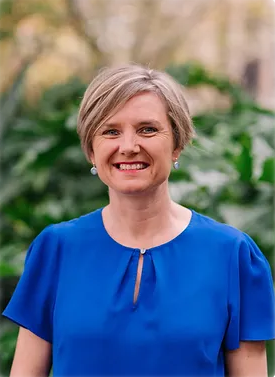
General Manager and Financial Adviser
EthinvestMember
Ethical Advisers CooperativeDirector
Australian Impact Investments
When Ethinvest was founded in 1989, it was the first financial planning company in Australia with a dedicated focus on ethical investment. Fast-forward 30 plus years and Fiona Thomas, Ethinvest’s General Manager and Financial Adviser, says that ethical and ESG investing is now a very different story.
“You don’t need to have an in-house ESG team, like you did 10 years ago, because there’s now so much data and information available,” Fiona explains. “Third-party research is easily accessible, and providers are also looking at the sustainability of the products they’re providing. Using models or screened ETFs means you don’t need to know everything about every product and every environmental and social issues to start having conversations with your clients.”
The way Ethinvest approaches client conversations about sustainability has also changed significantly over the years.
“It used to be more of a tick-box approach where we presented clients with a list of things from which they selected what they wanted to avoid or promote in their portfolios,” Fiona says. “However, we found that people felt they needed to tick everything rather than focusing on what’s really important to them.”
To get to the heart of a client’s values and interests, Ethinvest’s current approach now centres around open-ended conversations. Within the fact find for retail clients, there are questions asking if there are any particular sectors or activities they’re interested in or want to avoid.
Fiona says, “Rather than giving clients a list to choose from, we want to hear it in their
own words, if possible.”
Environmental and climate-related themes are the topics that clients bring up the most, along with healthcare and social justice. Fiona says that while issues such as tobacco, gambling and fossil fuel extraction are also important to clients, it’s almost a given that these sectors won’t be included in their investments.
“Those activities are a no-brainer for most of our clients,” she explains. “But many are now focusing on a range of more detailed issues. There has been a broad shift from excluding certain industries or companies to clients really caring about where their money is going. They’re aligning their investments to their interests where they can.”
While encouraging clients to name their own interests or exclusions means it might not always be possible to match them perfectly to an investment, Fiona believes these types of conversations help you understand your client on a deeper level.
“You know where they’re coming from. Then if opportunities come about, or you see a certain company within a fund, you’ll know the client well enough to know that it’s something they’ll be interested in. You can highlight it in your discussions, or you can you set up exclusions if you’re using SMAs.”
Having conversations about issues your clients truly care about allows you to form a much stronger connection. Fiona says Ethinvest’s clients are more engaged and ‘stickier’ as a result of these conversations.
“They’re more focused on what their money is doing in the world rather than how it has performed over the quarter or the year,” she says. “They have that long-term perspective. Even during periods, for example, where prices for energy stocks impact portfolios that exclude oil and gas, clients understand that it’s not all about the short-term returns.”
One of the biggest changes that Fiona has seen during her time at Ethinvest is the huge increase in ESG and ethical investment options.
“15 years ago, Ethinvest had to build its own bespoke portfolios because there were hardly any products for clients that had an ethical screen,” she says. “Now, there are so many options for advisers to build models or SMAs with high-quality ESG investments. You don’t have to make bespoke portfolios for clients anymore. If you can clearly articulate how you rate investments, which provider you’re outsourcing to and why you have confidence in them, that’s likely to be enough to meet the needs for 99% of your clients.”
Fiona urges advisers to be open to initiating conversations with clients about ESG investments. She stresses that there’s no need to feel nervous about initiating these conversations, because no client will expect them to be an expert on every topic.
“Clients really value when you’re honest about what you do know and what you’ll go away and investigate. What’s important is showing a genuine willingness to understand what the client’s values are and what they really care about.”
Adviser Case Study: Nathaniel Chell, Sky Summit Financial

Director and Financial Adviser
Sky Summit Financial
Nathaniel Chell started his NSW-based advice business Sky Summit Financial in 2017. Since then he has expanded the business by adding two more financial advisers and a team of seven in total.
Nathaniel started Sky Summit Financial to provide his clients with more investment choice and he found sustainable investments to be a logical fit for clients with 20 or more years to invest.
“Our clients are looking for companies that are still going to be around in 20 years,” Nathaniel says. “We don’t want to invest them in companies that may potentially end up with a huge amount of regulatory risk or stranded assets, or companies that won’t be able to operate because they have unacceptable environmental or social standards.”
Instead, Nathaniel and his colleagues favour companies that have the social and environmental licence to continue operating into the future. In most cases, these are innovative companies that are trying to do the right thing and are set up to be here for the long term.
Nathaniel explains that there is a broad range of clients who approach Sky Summit Financial. While some clients are highly educated and have strong ideas about the ethical or sustainable investments they’re looking for, others may not know exactly what they want but are passionate about animal welfare, or deforestation, or lowering CO2 emissions. There are also clients who may have had a bad experience that is influencing their investment preferences. For example, they may be from a rural location where a company came in and set up a coal seam operation in their backyard, so they’re adamant about not investing in fossil fuels.
Nathaniel says, “Different people will have a different value set. And they really want to have investments that are aligned with those values.”
Sky Summit Financial has specific questions in the data collection and fact-finding process to find out what’s important to each client. However, this is just the start of the conversation. The first time he meets with a client, prior to risk profiling them, Nathaniel asks the client whether they have a preference for any particular companies or investment styles. He also asks if they’re uncomfortable with any companies, sectors or industries.
“I start with a very broad statement,” he explains. “I don’t plant an environmental or social seed. I want to know what the client wants in their heart of hearts. Their responses will tell me their core values and whether they have a bias towards a particular type of investment without me potentially influencing the outcome with my questions.”
By taking the time to understand where the client is coming from, Nathaniel can categorise them into an ESG profile that aligns with their values. Some clients will have high conviction with stringent rules on what they will or won’t accept, while others may suit more of a mainstream portfolio with a tilt towards certain ESG investments. Using ESG categories for clients allows Nathaniel to efficiently allocate them to an investment portfolio without having to create a bespoke portfolio each time.
“From a practice efficiency point of view, it’s near impossible to create a bespoke portfolio for every client unless they have the capital and the means to pay for this service,” he says. “You just need to align portfolios with your clients’ values as best you can.”
In Nathaniel’s experience, while ESG investments appeal to clients of all ages there is one key difference between younger and older clients.
“Younger clients tend to be okay with taking more risks,” he explains. “First and foremost, they want to have their money going towards the causes they care about. Whereas the mindset of a retiree is that they want to do that as well, but they don’t want to compromise on returns. They want to make sure they leave something for the next generation. They’re searching for solid investments that will be around for the long term, building capital for them and their family, and for their money to make a difference and leave the world in a better place.”
ESG investing is an evolving space, with more options, research and diagnostic tools becoming available all the time. For advisers who are yet to dip their toe into ESG investing, Nathaniel encourages them to start small, with issues they themselves care about, and build up from there.
“Start off somewhere where you think you can align to the client’s value set. For example, if the client wants a portfolio with low CO2 emissions you can start with that. There are plenty of managed funds and ETFs you can research to make sure you’re comfortable with how the money is managed and how the screens, filters and thresholds are used. You can even continue to do what you’re doing now and then blend it with an ESG portfolio. Find your starting point to focus on and go from there.”
Conclusion
Responsible investing is here to stay and clients of the future will continue to seek ways to invest according to their ESG preferences and values. By starting the conversation with clients, advisers can not only broaden the scope of their practice and drive investment outcomes, but deepen client relationships through meaningful discussions.
At HUB24, we believe in the value of advice and are committed to innovation that drives efficiencies for advisers and value for clients. For more information on HUB24 ESG Ratings functionality, contact your BDM.
1 Responsible Investment Association Australasia, From Values to Riches 2022: Charting consumer demand for responsible investing in Australia, 2022.
2 Responsible Investment Association Australasia, Responsible Investment Benchmark Report Australia 2022.
3 Investments Trends, Investment Trends 2022 ESG Adviser Report, May 2022.
4 Responsible Investment Association Australasia, From Values to Riches 2022: Charting consumer demand for responsible investing in Australia, 2022.
5 Investments Trends, Investment Trends 2022 ESG Adviser Report, May 2022.
6 Principles for Responsible Investment, Annual Report, 2021.
7 Global Sustainable Investment Alliance, Global Sustainable Investment Review, 2020.
8 Largest growth in ESG data points from Global Sustainable Investment Alliance, Global Sustainable Investment Review, 2020.
9 Financial Times, ESG accounts for 65% of all flows into European ETFs in 2022, 13 January 2023.
10 Responsible Investment Association Australasia, From Values to Riches 2022: Charting consumer demand for responsible investing in Australia, 2022.
11 Investments Trends, Investment Trends 2022 ESG Adviser Report, May 2022.
12 McCrindle, Australia’s Income and Wealth Distribution, March 2023.
Disclaimer – Important Information
This document has been issued by HUB24 Custodial Services Ltd (ABN 94 073 633 664, AFSL 239 122 (HUB24). HUB24 is the operator of HUB24 Invest (an investor directed portfolio service), promoter and service provider of HUB24 Super which is a regulated superannuation fund. The trustee and issuer of interests in HUB24 Super is HTFS Nominees Pty Limited (ABN 78 000 880 553, AFSL 232500, RSE L0003216). The information in this document is intended to be general information only and not financial product advice. The views expressed in this document by persons who are not representatives of HUB24 are their own, and do not necessarily represent HUB24 views. HUB24 has not validated or verified the views expressed in this paper, make any representation as to the completeness or reliability of the material in this paper, accept any liability for loss attributable to use of this paper, including liability for any statements which are incorrect or misleading. Readers should not rely on the information in this paper and should undertake their own investigations and use their own commercial judgment. This document must not be copied or reproduced without the prior written consent of HUB24. © HUB24


